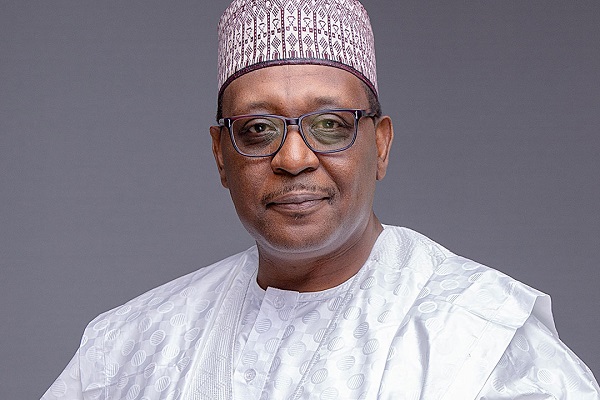
The Minister of Health and Social Welfare, Prof. Muhammad Pate has stated that President Bola Tinubu’s administration is spearheading transformative reforms that are reshaping Nigeria’s healthcare landscape.
Pate, recently named one of the 100 Most Influential Africans, disclosed this in an interview with journalists on Friday in Abuja.
He was reacting to his inclusion in the prestigious list released the same day by ‘New African’ magazine.
Science Nigeria reports that the 2024 ‘New African’ magazine’s list of the 100 Most Influential Africans features individuals from 29 nationalities, with Nigeria having the highest representation, followed by Kenya.
The magazine’s editor described the list as a “large family get-together,” reflecting the Ubuntu philosophy of “I am because we are,” emphasising unity in a polarised world.
This year’s list also underscores the growing significance of artificial intelligence (AI) and climate action, showcasing experts addressing ethical concerns and biases in AI systems.
The minister revealed that he turned down an appointment as CEO of Gavi, the Vaccine Alliance, choosing instead to return home to lead Nigeria’s health sector – a decision that has already yielded remarkable results.
“At the heart of these reforms is the National Health Sector Renewal Investment Initiative (NHSRII),” he said.
“Launched to replace the previously fragmented health system, the initiative adopts a cohesive approach: ‘one vision, one conversation, one budget, one report.’
“This framework has not only united federal, state and local governments but also galvanised private and international partnerships, mobilising an unprecedented $3 billion in external funding and $20 billion in domestic investments within four years.”
He highlighted the NHSRII’s impact, particularly in revitalising Nigeria’s primary healthcare system.
Under his leadership, Nigeria became one of the first countries to receive over one million doses of the R21/Matrix-M malaria vaccine, marking a groundbreaking development in the fight against one of the nation’s deadliest diseases.
Pate’s influence extends beyond Nigeria. As the West and Central Africa representative on the Global Fund Board (2024–2026), he has advocated for increased funding for Africa’s health systems. Nigeria’s hosting of the 5th Global High-Level Conference on Antimicrobial Resistance (AMR) in 2026 underscores the country’s growing role in addressing global health challenges.
Science Nigeria reports that facilities once plagued by shortages of medical supplies and personnel are now better equipped to provide essential services.
For instance, the Karmo Primary Healthcare Centre in the Federal Capital Territory now records a significant increase in antenatal visits, with women praising the availability of quality care.
“For the first time, I feel safe delivering my baby at this facility,” said Mrs. Mariamu Yusuf, a mother of three.
Meanwhile, experts believe that Pate’s reforms are laying the foundation for one of Africa’s most accountable health systems.
Dr. Sarah Eke, a public health consultant, said, “What makes Pate’s approach unique is its focus on measurable results and sustainability.”
“As Nigeria reaps the benefits of a unified health system, the question remains whether these reforms can be sustained beyond his tenure.
“However, for now, communities across Nigeria are already experiencing the transformative power of an integrated healthcare framework, proving that bold leadership and strategic partnerships can indeed change lives,” Eke added.
Key achievements of NHSRII under Pate’s leadership include mobilising $23 billion in domestic and international funding, revitalising over 5,000 primary healthcare centres, spearheading the deployment of the R21/Matrix-M malaria vaccine and securing hosting rights for the 2026 Global High-Level AMR Conference.
Health stakeholders note that Pate’s story is not just about reforms—it is about hope, resilience and a vision for a healthier Africa.
Science Nigeria also reports that the ‘New African’ magazine’s 2024 issue highlights individuals making significant impacts across various sectors, including politics, business, civil society, science, academia, creative arts and sports.
Established in 1966 and distributed in over 100 countries, the publication provides an African perspective on global news and profiles these influential figures in detail. The list reflects the diverse contributions shaping Africa’s future on the global stage.

